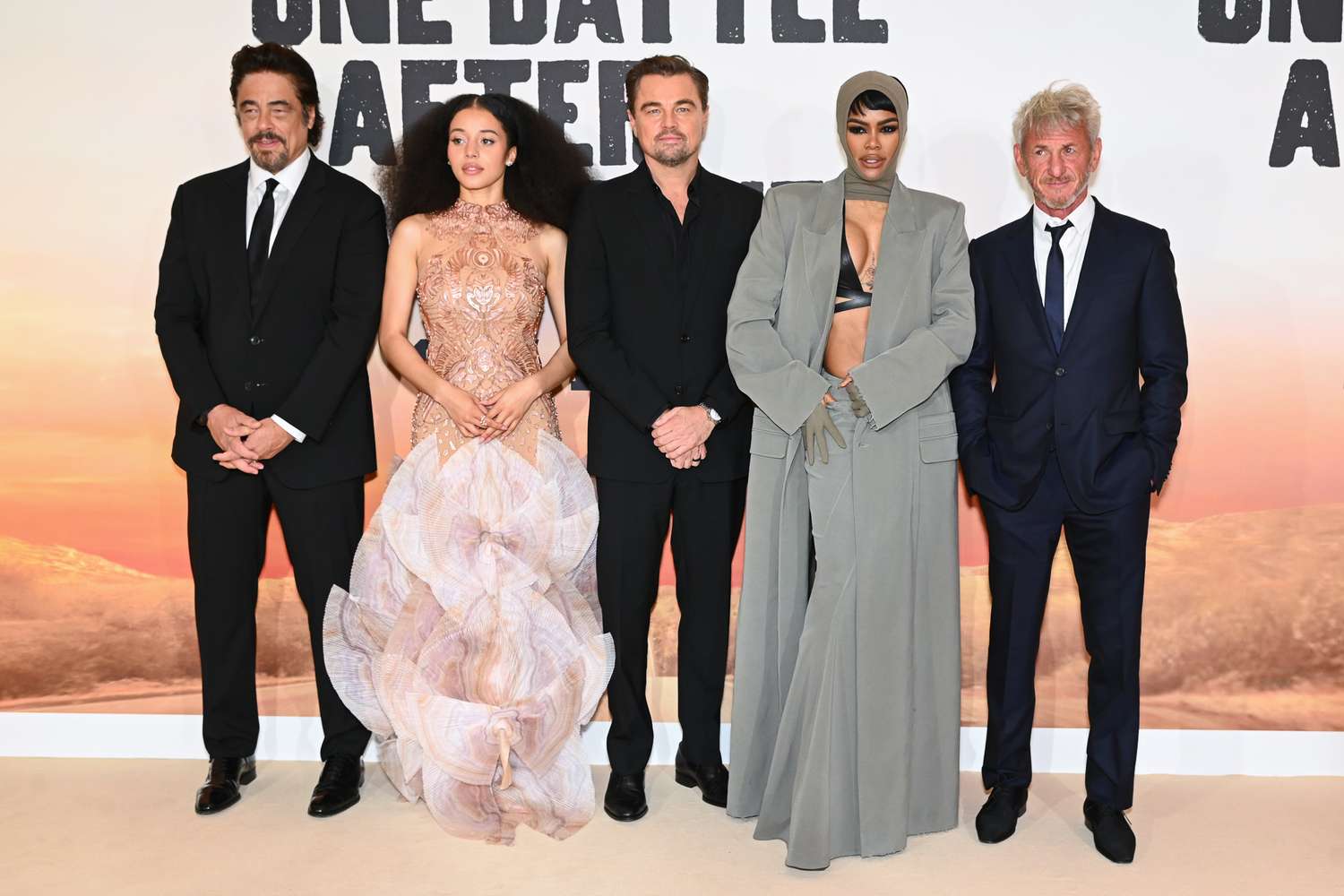The cast of One Battle After Another discusses how the action thriller uses humor and satire to hold “a mirror up to where we are as a society,” without “imposing” its own ideology on the audience.Leonardo DiCaprio discusses how the film explores extremism on both sides of the political spectrum.Regina Hall explains how the film goes hard on “female empowerment” both on and off-screen.
If art imitates life, then One Battle After Another is an apt reflection of our absurd times.
The film, about a group of revolutionaries who reunite to help one of their own — Bob Ferguson, a washed-up, paranoid stoner — rescue his daughter from their longtime enemy, has a lot to say about our fraught, divisive reality.
But for writer-director Paul Thomas Anderson, who loosely based the film on Thomas Pynchon’s novel Vineland, it was crucial to deliver that commentary without lecturing his audience.
“Paul keeps talking about the fact that if you’re going to create a political espionage thriller like this, it’s not about imposing your own ideology or your own political belief system on an audience — that’s like taking medicine,” star Leonardo DiCaprio, who plays Bob, says. “And you look back into the films that we admire, the Kubrick films like Dr. Strangelove, there’s a comedy to it, a satire to it, which makes you able to sort of hold a mirror up to where we are as a society.”
He continues, “[Anderson] just creates these worlds, these characters, these people that have a conviction in their ideology, their belief system, and what extremism does on both sides. And I think he very fairly analyzes what that means. What is extremism? Why can’t we communicate? Why don’t we want to understand each other? And I think at the core, we have these characters that have a greater deal of humanity to them, that have almost created a family together, and they realize that they’re just trying to survive. That’s the beauty of what this movie projects, I think.”
In addition to DiCaprio, newcomer Chase Infiniti plays his character’s daughter, Willa. Benicio del Toro costars as Sensei St. Carlos, Willa’s karate instructor and Bob’s buddy, who also moonlights as the leader of an underground railroad for immigrants. Teyana Taylor stars as Willa’s mother and controversial revolutionary leader, Perfidia, while Regina Hall plays Deandra, the most loyal revolutionary in the group. Oh, and the film’s main antagonist is the ridiculous Col. Steven J. Lockjaw (played by Sean Penn), who desperately wants to be initiated into a secret white supremacist group that calls itself… the Christmas Adventurers Club.
Teyana Taylor as Perfidia and Leonardo DiCaprio as Bob Ferguson in ‘One Battle After Another’.
Courtesy Warner Bros. Pictures
It’s juicy roles all around for this stacked cast, but especially for its trio of women, says Hall. “In the midst of all the depth, I feel like I met two incredible women,” she says, referring to Infiniti and Taylor. “That’s a big thing, that female empowerment comes across on screen, but it really is behind the screen as well. It’s nice to see somebody do great things and feel excited for that and kind of champion that,” she says, adding that she believes there’s no one else who could have played Willa or Perfidia.
The decisions and convictions of the latter are the topic of much discussion in the film, but Taylor herself just hopes those conversations linger long after the audience walks out of the theater — no matter which side of the political aisle they’re on.
Regina Hall as Deandra in ‘One Battle After Another’.
Courtesy Warner Bros. Pictures
Want more movie news? Sign up for Entertainment Weekly‘s free newsletter to get the latest trailers, celebrity interviews, film reviews, and more.
“I think this is the time for the necessary conversations,” Taylor says. “And hopefully this does spark — and it’s already sparking — a lot of healthy dialogue. Everything don’t have to be a big blow-up. I think we are allowed to have different opinions, and we’re allowed to really discuss, but I think the conversations are very, very necessary and hopefully this wakes that up.”
If the subject matter and the hilariously absurd way it’s presented make you uncomfortable, it’s okay to laugh, too. Just ask del Toro, who promises, “That’s why you have to see this movie on the big screen, because when you hear someone else laughing, then you go, ‘Okay, I can laugh. It’s okay to laugh. I am okay to laugh. I’m not crazy if I laugh at this.'”

